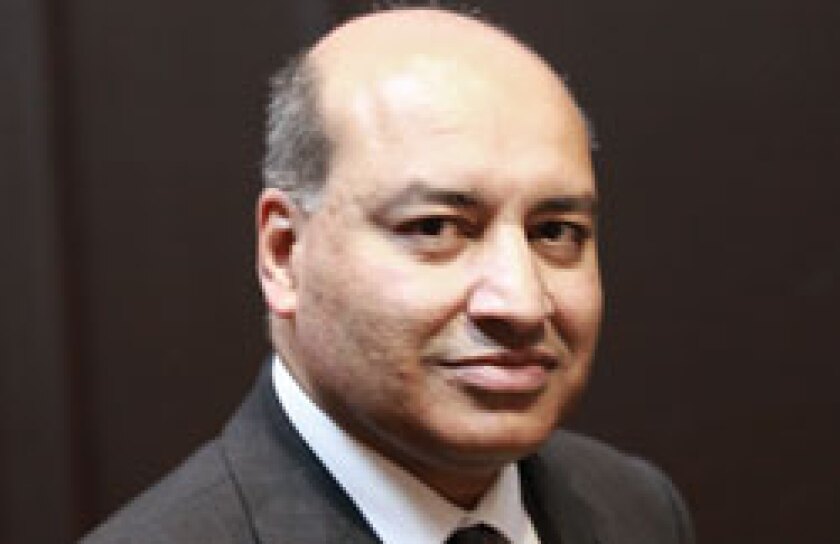The UK last night looked poised to assume a bigger role on the development stage after its candidate won a shock victory in the race to become the head of the EBRD and its finance minister laid out a demand for action by other shareholders on the troubled Arab Spring region.
Sir Suma Chakrabarti, a career civil servant with experience at the IMF and World Bank, ended Thomas Mirow’s hopes for a second four-year term and defeated three other rivals to win an unprecedented election among EBRD shareholders for the top job.
His victory breaks a Franco-German stranglehold on the leadership of the bank that has seen a citizen from one of those countries head the bank since it was set up in 1991 to help rebuild economies in central and eastern Europe and the former Soviet Union in the wake of the fall of the Berlin Wall.
The decision had not been expected as there was thought to be a gentleman’s agreement that a Briton would not take the top job at the bank when it was decided to site it in London.
But the selection of Chakrabarti will be seen as a victory for the UK, which has not taken any recent international role and which will be keen to use the position to further its development agenda.
British finance minister George Osborne described it as “the product of a serious campaign and strong diplomacy”.
Just hours before the news broke, Osborne used a keynote speech at the EBRD to hector fellow shareholders that had not ratified the extension of the bank’s remit into the Middle East and North Africa in the wake of the Arab Spring.
He criticized countries that had not yet ratified last year’s agreement, warning that “not extending the hand of friendship” would lead to a rise of extremism in those states. “If not addressed chronic unemployment will breed instability,” he said.
He said that seven months after EBRD governors had approved the remit expansion, only 27 out of the 63 country members had ratified it compared with the minimum of 44 needed.
“All of us have to up our game. It is undoubtedly the greatest prospect for the enlargement of human freedom and dignity since the Cold War,” he said. “We should not be blind to the challenges and success is not guaranteed.”
Chakrabarti saw off a challenge from French candidate, Philippe de Fontaine Vive Curtaz, who is a vice president of the European Investment Bank (EIB), former Polish prime minister Jan Krzysztof Bielecki and former Serbian deputy prime minister Bozidar Djelic.
The manner of his appointment will fuel calls for top jobs at other multilateral institutions to be opened up to a larger shortlist. The International Monetary Fund has been by a European and the World Bank by a US citizen since they were founded 70 years ago.
After the result was announced, Chakrabarti said: “The open, fair and merit-based process has been a credit to the Bank and to all the other candidates.”
The race took on added importance after France and Germany failed to agree on a candidate and Berlin declined to endorse Mirow for a second term, the first time a country has declined to back its own candidate. In the end Mirow was formally proposed for the job by Russia and Bulgaria.
Mirow had sought to turn the lack of an endorsement from Berlin into an advantage, telling Emerging Markets: “I would see as a weakness for the institution the notion that any president acts on behalf of, or would be too dependent on, one government, namely his home government.”
Mirow’s ousting now opens up a scramble for a whole host of senior European positions that could intensify the jockeying for position between Berlin and Paris.
Mirow will be credited for overseeing the EBRD’s response to the financial crisis through the Vienna Initiative, a successful capital increase for the EBRD, further engagement with Turkey and pushing its shareholders to engage in the southern and eastern Mediterranean.
The five-way race had fuelled speculation about how different countries would shift their allegiances as the weaker candidates dropped out. However the EBRD declined to release details of how the voting had transpired though yesterday evening’s governors meeting.
